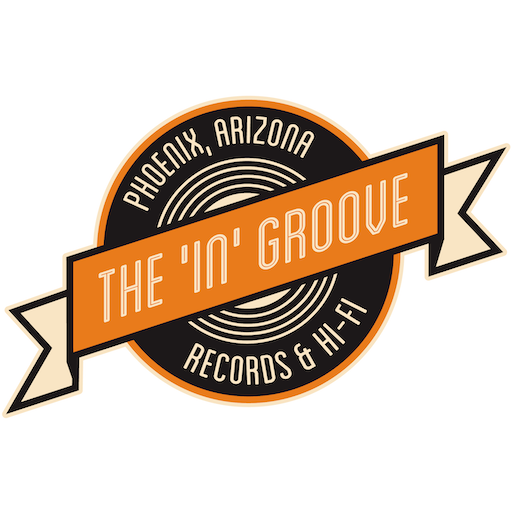Grateful Dead - Workingman's Dead - MFSL SACD
Grateful Dead - Workingman's Dead - MFSL SACD
Pickup available at The 'In' Groove
Usually ready in 1 hour
Grateful Dead Workingman’s Dead on Numbered Edition Hybrid SACD from Mobile Fidelity
Sublime, Stripped-Down 1970 Americana Classic Steeped in Country, Blues, and Folk
You’ve Never Heard This Roots-Based Marvel Sound Better: Mastered from the Original Master Tapes and Filled With Resplendent Presence, Realism, and Balances
Ranked #264 on Rolling Stone’s List of the 500 Greatest Albums of All Time: Airy Harmonies, Simple Structures, Concise Arrangements, and Burnished Tones Anchor Songs
Workingman’s Dead defies the erroneous belief that the Grateful Dead never attained brilliance in the recording studio. Forever prized for natural sonics, Workingman’s Dead attains audiophile reference status courtesy of this first-ever hybrid SACD version. As flawless as any rustic album ever released, the 1970 set now brims with soaring harmonies, organic execution, intertwined textures, and uncomplicated structures that furnish the songs a transcendence associated with timeless American music. Colorful, relatable characters seemingly torn from working-class histories and old-time fables inhabit the narratives.
Mastered from the original master tapes, Mobile Fidelity’s numbered-edition SACD of this period-defining recording renders the stripped-down fare with immense detail, rich airiness, and reach-out-and-touch-it realism. Longtime Deadheads and newcomers alike will hear significantly more information, experience wider and deeper soundstages, and become swept away by incredible tonal and vocal balances. Instrumental melds and refined accents, such as guest David Nelson’s nimble fills on “Cumberland Blues,” are part of a larger whole that gives the impression you are witness to the world’s coziest campfire session. Frontier tales and refined performances further this feeling.
The first Grateful Dead album to eschew cosmic jams and complex signatures, Workingman’s Dead stakes its existence to great songs, homespun warmth, and bare essentials. Its wistful, relaxed state—immediately apparent via the innocent album-opening invitation “Will you come with me?” on “Uncle John’s Band”—owes to the circumstances and conditions surrounding its creation. At the time, the Dead owed a considerable financial debt to Warner Bros. and were hobbled by a recent drug bust and financial scandal. Most significantly, the band was recovering from—and reacting to—the tragic events of the Altamont Music Festival and symbolic end of the peace and love era.
As such, Workingman’s Dead acts as a retreat from chaos and uncertainty, its songs emblems of simpler times and pleas for compassion in the face of hardship. Lyricist Robert Hunter said he aimed to capture the vintage elements of late 1940s country-and-western jukebox singles as well as old blues classics. In that vein, fare such as the Bakersfield-leaning “Cumberland Blues,” pastoral ballad “Dire Wolf,” and bluesy “Easy Wind” hit the mark. Leader Jerry Garcia’s occasional pedal-steel underpinnings arrive as a bonus.
Of course, aside from the economical concision and thematic consistency, the genius of Workingman’s Dead resides in the group’s expressive harmonies. Taught by Crosby, Stills and Nash, the Dead produce live “air blends” of multi-part vocal harmonies that provide the foundations of nearly every track. “Uncle John’s Band,” “High Time,” “New Speedway Boogie” (with the iconic refrain “One way or another/This darkness has got to give” referencing the ill wind that greeted the new decade), and the radio favorite “Casey Jones” practically float on the ensemble’s communal vocal beds.
Mobile Fidelity’s hybrid SACD renders these invigorating, refreshing, and engaging characteristics in three-dimensional sound that transports you to the event. Recordings don’t get more lifelike. Workingman’s Dead—an iconic, ageless record that drew countless listeners to the band’s unique style because of its accessibility and charm—deserves nothing less. Neither do you.


